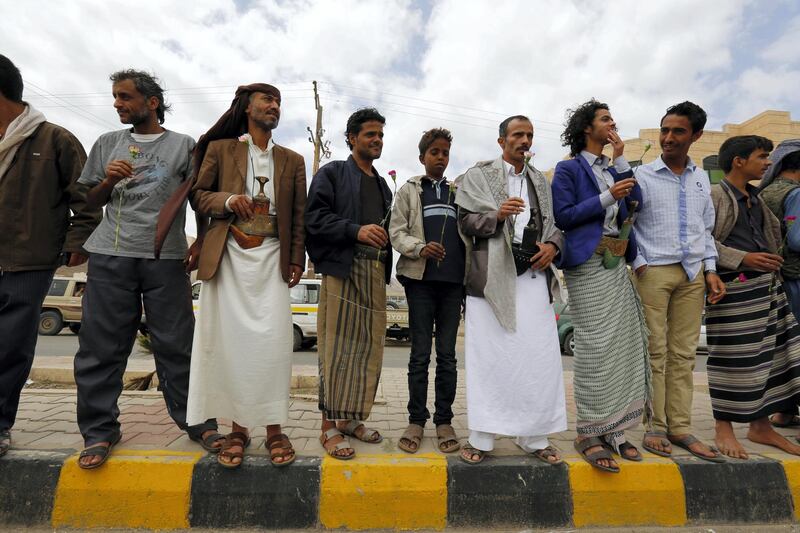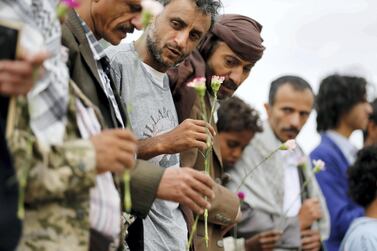The US has demanded that Houthis rebels release all the detained followers of Yemen’s Bahai faith, after reports they are being mistreated and tortured while in custody.
Houthi leaders are indicting dozens of Bahais, including Hamed bin Hayadara, who has been in Houthi detention in Sanaa since 2013.
The prominent leader was sentenced to death by a Houthi court for charges of espionage and apostasy in January 2018. Members of the community describe the accusations as “baseless”.
"We are deeply concerned about credible reports that the Houthis continue to severely mistreat, arbitrarily detain, and torture Bahais in Yemen," US State Department spokesperson Morgan Ortagus said on Monday.
“This persistent pattern of vilification, oppression, and mistreatment by the Houthis of Bahais in Yemen must end.”
Yemen’s internationally recognised government has repeatedly pushed for their release but the rebels are yet to respond.
While detained, Mr Haydara has reportedly endured physical and psychological torture.
“The Houthis have refused to provide the evidence against him or release him, and most recently refused to rule on an appeal in his case,” Ms Ortagus said.
A number of trials against Mr Haydara, including the one when the death sentence was imposed, took place without him being present, and his lawyer was not given the opportunity to contest the evidence presented against him.
A UN resolution has called for the immediate release of all Bahai that are detained in Yemen due to their religious beliefs and to cease any harassment.
The rebels have targeted dozens of Bahais with charges similar to those imposed on Mr Haydara and other unfounded charges related to religious affiliation, Ms Ortagus said.
“Bahais face daily discrimination and persecution as they seek to practice their faith in Yemen and elsewhere around the world.”
Violence against the minority group has become more common during the last three years, since the rebels seized Yemen’s capital.
“Freedom of religion is a fundamental human right and a source of stability for all countries. Every person around the world should be free to practice their religion without fear of intimidation or reprisals,” Ms Ortagus said.
The Bahai faith was founded in Iran, but is opposed by the regime in Tehran. Iran grants freedom of religion to several minorities but targets the Bahais, who preach unity among religions.
Nearly 2,000 Bahais live in Yemen, with most of them based in Houthi-held Sanaa. Prior to the rebel coup, the vulnerable community coexisted in peace with other factions of Yemen’s society.







